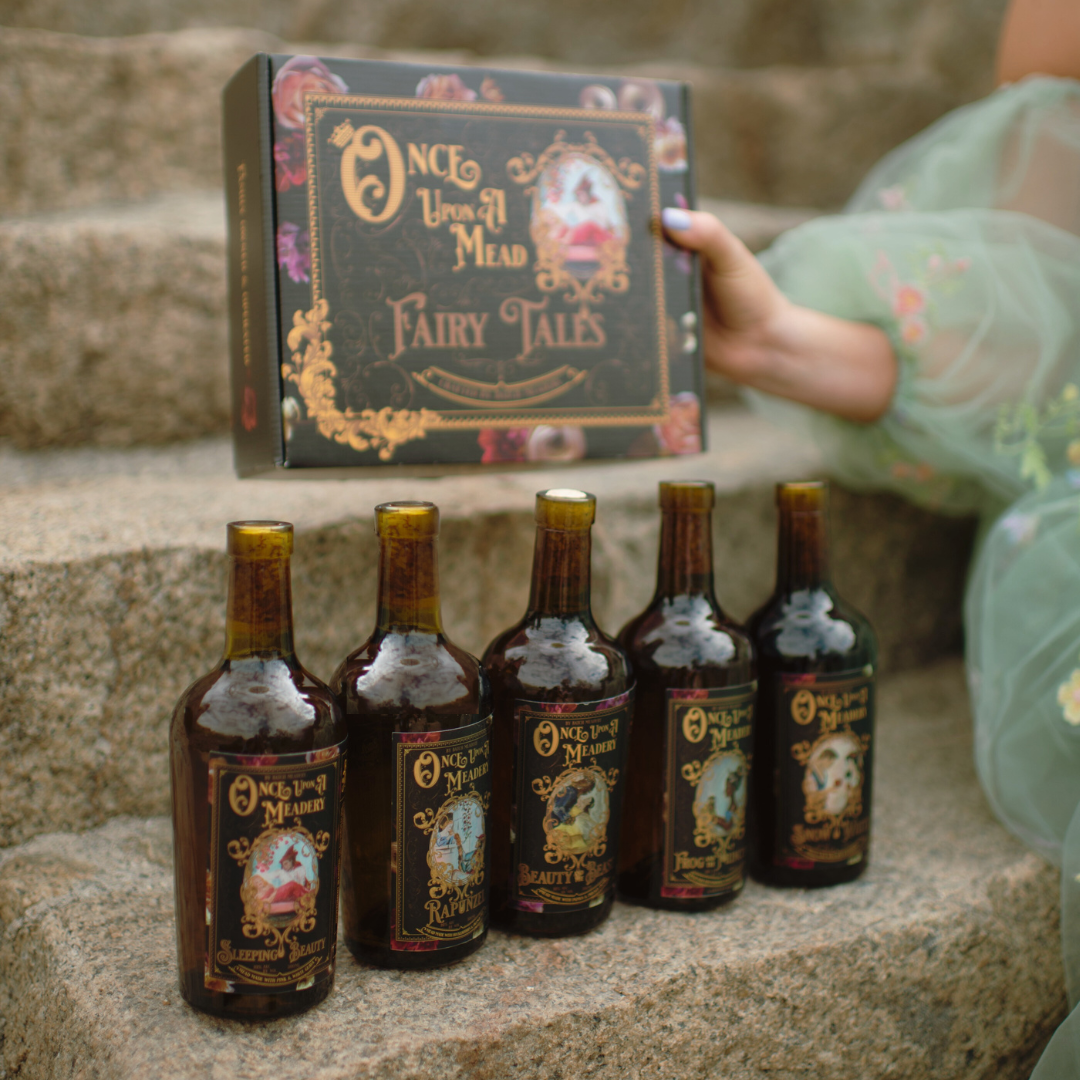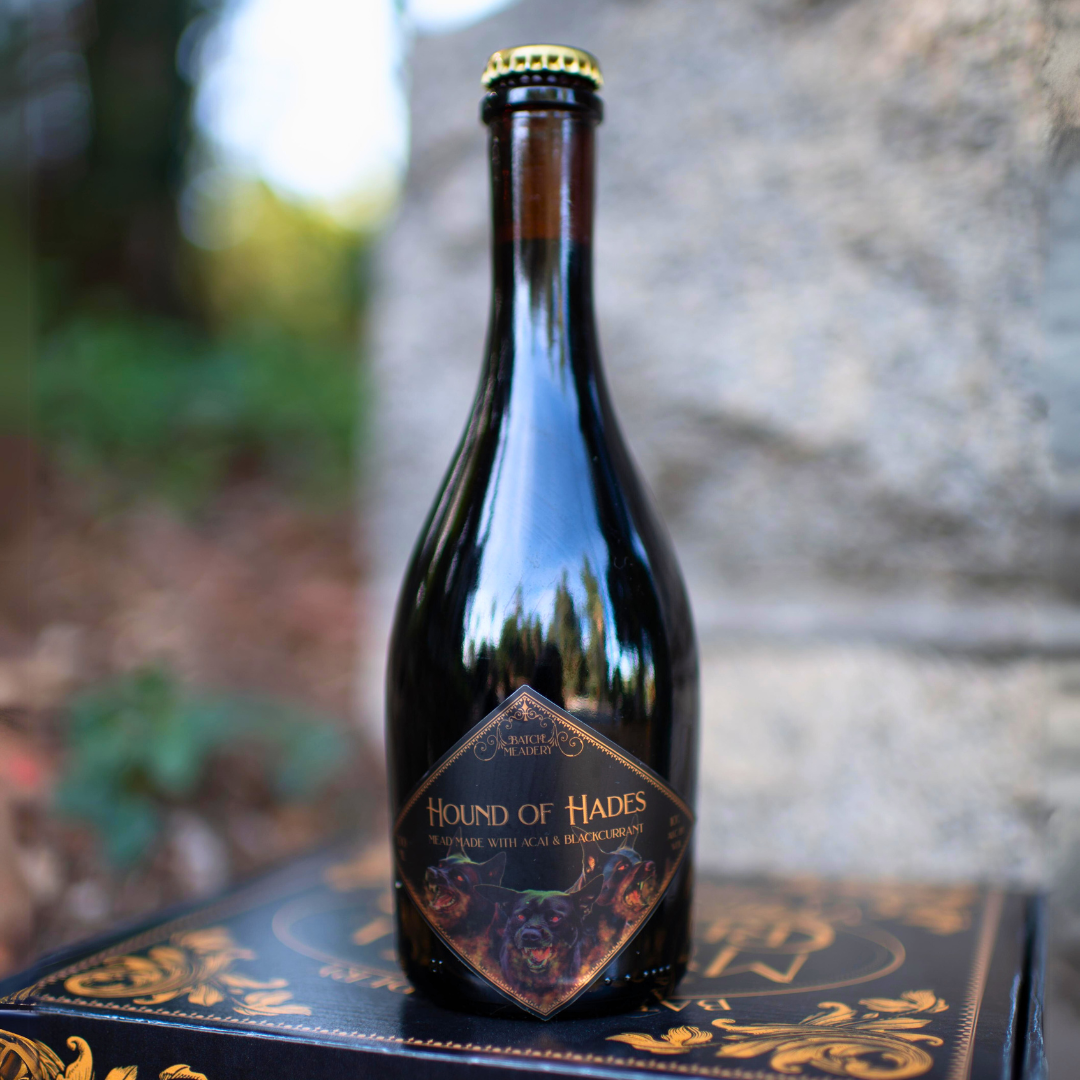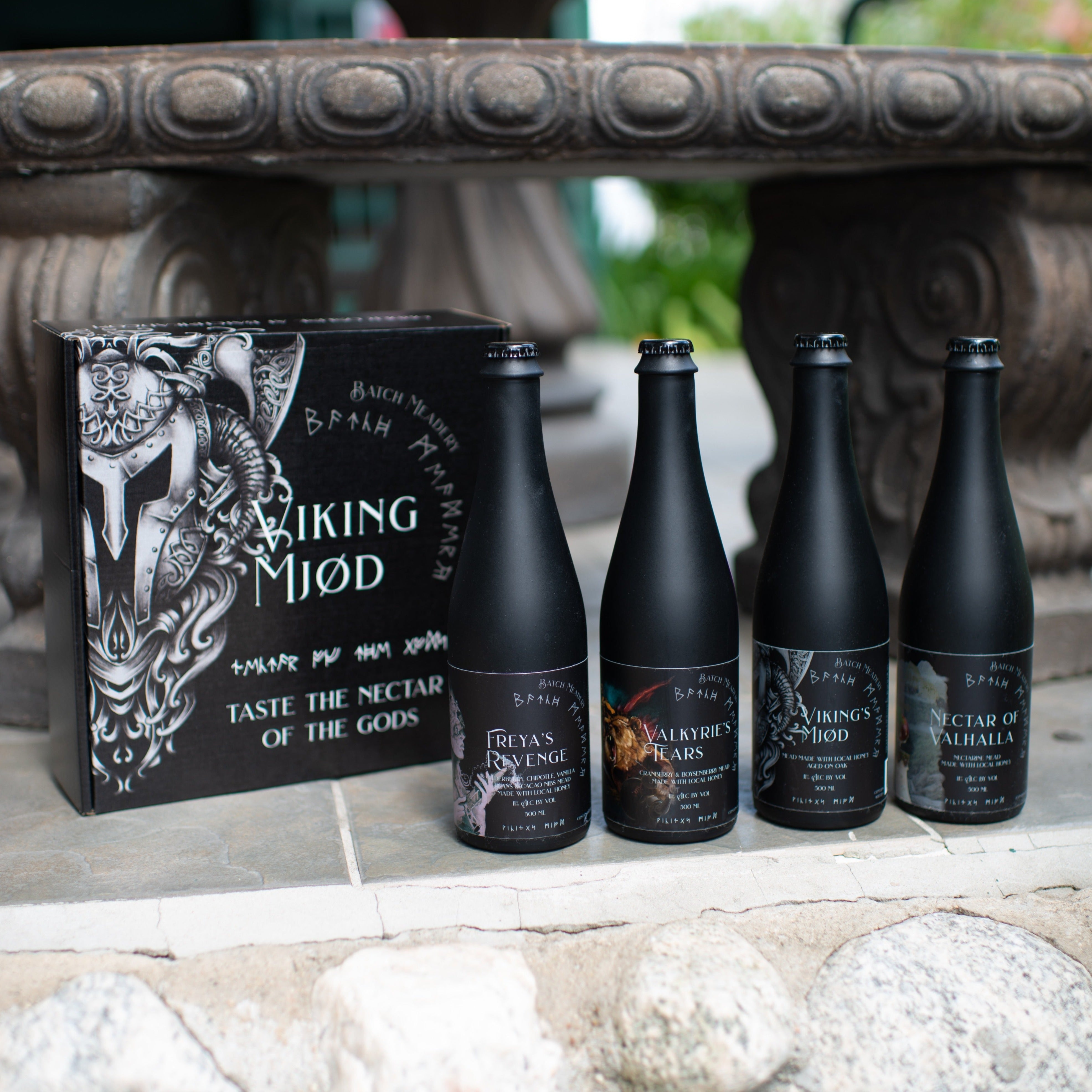The Ancient Elixir
Mead, often hailed as the "nectar of the gods," holds the prestigious title of the oldest alcoholic beverage known to humanity. Its history, shrouded in the mists of time, spans continents, cultures, and millennia, telling a tale as rich and intricate as its flavors. This deep dive into the origins of mead invites history buffs, beverage enthusiasts, and homebrewers to explore an enthralling legacy that predates both agriculture and ceramic pottery.
Origins of Mead - 20,000 B.C.
The quest to pinpoint the exact origin of mead proves elusive due to its presence across several continents long before the dawn of recorded history. Perhaps the earliest mentions come from African bush tribes, believed to date back over 20,000 years. These tribes, encountering the spontaneous fermentation of honey by natural yeasts, might have stumbled upon mead by serendipity, forever altering human consumption of fermented beverages.
Further evidence of mead’s ancient pedigree is found on the island of Crete, dating back to 8,000 B.C. The Greeks, enamored by mead's ethereal qualities, dubbed it the "nectar of the gods." The term "aphrodisiac" itself is thought to have been inspired by the intoxicating effects of mead, suggesting a divine or magical origin.
In northern China, pottery vessels dating back to at least 7,000 B.C. offer tangible proof of mead's ancient consumption, while ancient India's sacred texts, the Rig-Veda, penned in 3,700 B.C., mention "soma," an early form of mead.
Mentions of Mead Throughout History
Throughout history, mead has woven its way through mythology, culture, and celebrations, transcending geography to emerge in the legends and historical texts of various ancient peoples:
- Norse Mythology: Mead is celebrated in the tales of the "Mead of Poetry," a magical brew crafted from the blood of Kvasir, a being of immense wisdom. This mead bestowed poetic genius or scholarly knowledge upon those who drank it.
- Ancient Greece: Mead reigned as the preferred drink during the Golden Age, a testament to its esteemed place in Greek society. In fact, the ancient Greeks honored Bacchus as the God of Mead well before his initiation as the God of Wine.
- Aristotle's Writings: In his work "Meteorologica," Aristotle references mead produced in Illiria, illustrating its widespread consumption across ancient civilizations.
- Pliny the Elder: The first-century CE Roman author differentiated between wine sweetened with honey and true mead, showcasing an early understanding of fermentation processes.
- Beowulf: This Old English epic poem vividly describes Danish warriors partaking in mead, underscoring its significance in medieval European culture.
Mead played a vital role in the economy of several societies. Monasteries across Europe brewed mead both as a source of income and for medicinal purposes, believing in its health-giving properties. The detailed recipes and methods developed by these monastic communities contributed significantly to the refinement and diversification of mead, leading to the creation of various styles, including melomels (fruit meads), metheglins (spiced meads), and cyser (apple meads).
What is Mead?
Mead is the oldest alcohol known, it consists of fermenting honey water and yeast.
Mead long ago took its place atop the Oldest Alcoholic Beverage pedestal, but the jury’s still out on when and where it originated.
This simplicity belies the drink's complex flavor profile and its profound cultural significance. The production of mead, while basic in its ingredients, encompasses a tradition of craftsmanship and a deep connection to the natural world, echoing the communal spirits of the societies that cherished it.
Mead by Accident?
The creation of mead may very well have been accidental. Picture this: rain dilutes honey accumulated in the crevices of a tree, and natural airborne yeast initiates fermentation. The prehistoric individual lucky enough to taste this mixture would have experienced a pleasantly surprising effect—a discovery that would significantly impact human history.
Exploring the Diverse History of Mead
The saga of mead does not belong to any single culture or era. From the Norse legends to the ancient Greeks, from the venerable texts of India to the archaeological sites of China, mead’s story is a tapestry of human ingenuity and nature's bounty. It reminds us of our shared heritage and the timeless pursuit of crafting and enjoying life's simple pleasures.
Meadmaster Mark Beran and Dr. Garth Cambray, founder of Makana Meadery in South Africa, argue for its origins in the African bush, where the elements conspired to create mead in natural fermenters formed from hollowed-out trees. This theory speaks to the fundamental human experience of discovery, experimentation, and the appreciation of nature's gifts.
Mead's story transcends the beverage itself, symbolizing humanity's enduring spirit of exploration and our intrinsic connection to the natural world. Whether through divine accident or human curiosity, mead has sealed its place in history as a drink that bridges the gap between the mundane and the celestial.
As we raise our glasses to the past, we also toast to the future—may the story of mead continue to inspire and unite us across cultures and generations. Skål!
Would you like to learn more about mead? Check out our articles on the Vikings & Mead, Honey Cocktails, and Types of Mead!

Once Upon a Mead - Fairytale Mead Set

Hound of Hades Mead

Viking Mead Series - 4 Bottle Set
About Us
MEAD (HONEY WINE) IS A PASSION FOR US
We started Batch Mead in 2019 to leave our Silicon Valley tech careers and pursue our real passion, MEAD!
We love locally sourced honey, apples and other ingredients. We focus on small batches to keep taps rotating and deliver delicious meads and hard ciders.
We believe mead is an experience, and our tasting room reflects all the notes of that ideal experience.
We recently won Best in Show from the San Diego International Beer Festival (2020, 2021 & 2022)! As well as several other wine, beer & mead awards!

